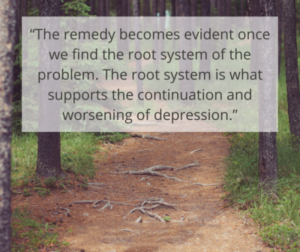Single Women Over Fifty Ask, “Will I Ever Get Married?”
By the time you hit the age of fifty, you’ve picked up a few truths. You know which coffee brands are worth the extra dollar, and you’ve figured out how to pay your own bills. You may even love sleeping in the middle of the bed without apology. But sometimes there’s still this small quiet question that bubbles up when things get still enough. You wonder if you will ever get married or even fall in love?
Statistically speaking, the odds aren’t in your favor. If you’re a woman who has never been married and you’re over the age of fifty, the data puts your chances of marrying somewhere around 5-10%, depending on where you live and a few other factors. It’s not zero, of course, but it’s not a high probability either.
And yet you still desire to find the love of your life.
 Those statistics don’t tell the whole story. They don’t know you or what is possible, especially when you seek the help of God. God sees the desires of your heart, even the ones that you’re too afraid to admit to other people. He doesn’t shame you for wanting love. Remember, it was His idea in the first place.
Those statistics don’t tell the whole story. They don’t know you or what is possible, especially when you seek the help of God. God sees the desires of your heart, even the ones that you’re too afraid to admit to other people. He doesn’t shame you for wanting love. Remember, it was His idea in the first place.
But you’ve probably already prayed that God would bring the right husband into your life, right? Maybe you’ve been praying for a long time, and now you’re tired. Not tired of trusting God or praying, of course, but of waiting, and that is a perfectly normal reaction.
It’s normal to grow tired of timidly walking into events alone or cringing from well-meaning comments about whether you’re dating. And it can be exhausting pretending that you don’t care that there is no significant other in your life, when you still long for a wedding band on your finger.
Weariness is not an indication of your lack of faith in God or His perfect plan. But it is a type of grief for what you think you’re missing out on, even if it’s mixed with a healthy dose of hope that life won’t always look the way it does now. God understands these complex, sometimes contradictory emotions. He knows the ache of being misunderstood and what loneliness feels like.
Your weariness may be partly due to the lies you tell yourself. You might not even realize it, but over time, it’s easy to internalize messages that aim to convince you that something is intrinsically wrong with you. “If only I had been prettier, thinner, more outgoing, then maybe someone would have picked me up by now.” Lies like that have a way of planting seeds that develop deep emotional roots.
Therapy can benefit you by giving you a platform to sort through the confusion and help to uproot those painful and sinister lies. A Christian therapist can give you an outlet to say the things out loud that have been trapped in your mind. Therapy can give you the tools to sort through the sadness, frustration, and even the shame that sometimes tag along with prolonged singleness.
It’s okay to still want to be chosen, even if you’re in your fifties or older. Love at your age might look a bit different than if it had come earlier in life. But maybe that’s a good thing. With age comes less need for performance and pretending to be something you’re not. There is less time wasted because by the time people hit their fifties, they begin to know exactly what they want and what they will no longer endure.
One significantly positive difference is that you’re not trying to build a life from scratch but inviting someone into a life you’ve already worked hard to establish.
Yes, the odds might not be in your favor if you’re seeking love after fifty, but that doesn’t mean that, with God’s guidance, it won’t happen. And what if it doesn’t? Then you’ll be okay too, because God’s love is not short nor confined to your plans.
What should you do while you wait? Stop. You stop waiting. Stop waiting to live life as a part of a marriage and make the most of your singleness right now. Go to the party, even if you’re going alone. Make space in your life for people who matter and get connected to a healthy church family who can be there with you through life’s ups and downs.
Just because you stop waiting, doesn’t mean you stop hoping. Don’t put your life on hold. Live fully while leaving an extra seat at the dinner table. Because you never know when God may do something beautiful and send someone to you at a most unexpected time.
If someone does walk in? Great. If not, you are still building a beautiful, meaningful, and connected life. One that isn’t defined by whether you wear a ring, but by the way that you choose to love yourself, others, and most importantly, God. Your best years are not behind you, nor were they wasted on singleness. Some of the best moments might still be ahead, whether you’re married or not.
If you would like to learn how a Christian therapist can help you navigate singleness after fifty, contact our office today.
Resources:
https://www.bgsu.edu/ncfmr/resources/data/family-profiles/eickmeyer-age-variation-first-marriage-rate-1990-2017-fp-19-05.html
Photo:
“A woman standing”, Courtesy of Roberta Sant’Anna, Unsplash.com, CC0 License

 Go to bed
Go to bed Anxiety has a physiological effect on a person. That’s a way of saying that it changes how your body functions, and how you experience the world around you. Anxiety can also affect your life as a Christian in several ways. Physically, anxiety can lead to shortness of breath, trembling, shaking, heart palpitations, sweating, tension headaches and muscle pain, insomnia and fatigue, stomach problems, or feeling lightheaded.
Anxiety has a physiological effect on a person. That’s a way of saying that it changes how your body functions, and how you experience the world around you. Anxiety can also affect your life as a Christian in several ways. Physically, anxiety can lead to shortness of breath, trembling, shaking, heart palpitations, sweating, tension headaches and muscle pain, insomnia and fatigue, stomach problems, or feeling lightheaded. Scripture offers many encouragements and reminders to help us deal with our anxieties. Yes, our circumstances may seem uncertain, but God cares for us. Jesus reminds His followers about God’s care for all His creation, including us, and that is why we ought not to be anxious (Matthew 6:25-34). Instead of carrying them ourselves, we are to cast our anxieties on God because He cares for us (1 Peter 5:7, ESV).
Scripture offers many encouragements and reminders to help us deal with our anxieties. Yes, our circumstances may seem uncertain, but God cares for us. Jesus reminds His followers about God’s care for all His creation, including us, and that is why we ought not to be anxious (Matthew 6:25-34). Instead of carrying them ourselves, we are to cast our anxieties on God because He cares for us (1 Peter 5:7, ESV). Anxiety can eat you up inside if you keep it bottled up. That’s one reason praying about your anxieties makes a difference. Putting your anxieties into words helps you to start getting a handle on them. Sometimes you gain a clearer picture of what’s at the root. By placing it before the Lord and leaving it to Him, it gives room for Him to give you comfort and peace.
Anxiety can eat you up inside if you keep it bottled up. That’s one reason praying about your anxieties makes a difference. Putting your anxieties into words helps you to start getting a handle on them. Sometimes you gain a clearer picture of what’s at the root. By placing it before the Lord and leaving it to Him, it gives room for Him to give you comfort and peace. Other forms of self-care aside from exercise include ensuring that you get good sleep, as this helps you with emotional regulation. Take breaks, as that helps you to reduce stress and avoid being emotionally reactive.
Other forms of self-care aside from exercise include ensuring that you get good sleep, as this helps you with emotional regulation. Take breaks, as that helps you to reduce stress and avoid being emotionally reactive. Massage is a great way to relax the body. Treat yourself to a 30- or 60-minute massage. It can be exactly what the body needs to calm itself down naturally. Not only does massage help calm inflammation throughout the body, but it also resets both the sympathetic and parasympathetic nervous systems.
Massage is a great way to relax the body. Treat yourself to a 30- or 60-minute massage. It can be exactly what the body needs to calm itself down naturally. Not only does massage help calm inflammation throughout the body, but it also resets both the sympathetic and parasympathetic nervous systems. Being constantly told to look at the bright side of things or think positively is not helpful. Depression is not a choice or a mood. When you are depressed, you can’t control your thoughts. Your thoughts control you.
Being constantly told to look at the bright side of things or think positively is not helpful. Depression is not a choice or a mood. When you are depressed, you can’t control your thoughts. Your thoughts control you. The death of a loved one or the loss of a long-cherished dream break you up inside, and gush forth tears, sadness and anger intermingled. Our emotions alert us to what’s going on inside of us and how we’re experiencing the world, so they are helpful for everyday life.
The death of a loved one or the loss of a long-cherished dream break you up inside, and gush forth tears, sadness and anger intermingled. Our emotions alert us to what’s going on inside of us and how we’re experiencing the world, so they are helpful for everyday life. Have you ever scared yourself because of how you reacted to a situation? For example, your child or spouse did something that annoyed you, and your reaction was so over the top that you found yourself shocked and scrambling to apologize and figure out where that reaction even came from.
Have you ever scared yourself because of how you reacted to a situation? For example, your child or spouse did something that annoyed you, and your reaction was so over the top that you found yourself shocked and scrambling to apologize and figure out where that reaction even came from.
 However, because anger has a physiological effect, being angry a lot because you have a low anger threshold means that you’re putting your health at risk. Chronic anger increases your risk of stroke, it weakens your immune system, not to mention higher risks of high blood pressure, heart problems, headaches, skin disorders, and digestive problems.
However, because anger has a physiological effect, being angry a lot because you have a low anger threshold means that you’re putting your health at risk. Chronic anger increases your risk of stroke, it weakens your immune system, not to mention higher risks of high blood pressure, heart problems, headaches, skin disorders, and digestive problems. There are a variety of causes of depression and reasons why people become depressed. A mixture of genetics, brain chemistry, and family history each play a role in developing depression. Certain individuals may have a biological predisposition for developing mood issues when faced with overwhelming stressors.
There are a variety of causes of depression and reasons why people become depressed. A mixture of genetics, brain chemistry, and family history each play a role in developing depression. Certain individuals may have a biological predisposition for developing mood issues when faced with overwhelming stressors. There is a wide range of assorted symptoms involved in each individual experience of depression. Each person will have a different combination of symptoms which fit one or more types or patterns of depressions.
There is a wide range of assorted symptoms involved in each individual experience of depression. Each person will have a different combination of symptoms which fit one or more types or patterns of depressions.

 Some people struggle with deep-rooted anger that is just constantly bubbling under the surface and is invisible to the naked eye. However, this is also very damaging to emotional and physical health, and will eventually lead to a massive outburst, or long-term issues, that will fail to be resolved until the underlying anger is taken care of.
Some people struggle with deep-rooted anger that is just constantly bubbling under the surface and is invisible to the naked eye. However, this is also very damaging to emotional and physical health, and will eventually lead to a massive outburst, or long-term issues, that will fail to be resolved until the underlying anger is taken care of. Perhaps you can see that your anger is affecting those closest to you, or that your underlying issues are causing you to burst out in irrational behavior on a regular basis these could be clear indicators that it would be wise to seek out help in this area. If you feel as if your anger is growing uncontrollably, it could certainly be time to reach out to a counselling service for assistance.
Perhaps you can see that your anger is affecting those closest to you, or that your underlying issues are causing you to burst out in irrational behavior on a regular basis these could be clear indicators that it would be wise to seek out help in this area. If you feel as if your anger is growing uncontrollably, it could certainly be time to reach out to a counselling service for assistance. As Christians, we should have our anger in check at all times. Of course, there are things in this world which may cause you to feel “righteous anger” of some kind, but this is not the most common type of rage that people struggle with.
As Christians, we should have our anger in check at all times. Of course, there are things in this world which may cause you to feel “righteous anger” of some kind, but this is not the most common type of rage that people struggle with. One way of tackling anger is to really get to the root of what is triggering such a visceral emotional response. Some triggers may be more avoidable than you think, and may simply require a bit of extra forethought.
One way of tackling anger is to really get to the root of what is triggering such a visceral emotional response. Some triggers may be more avoidable than you think, and may simply require a bit of extra forethought.


 Is anger putting a strain on your relationships, damaging any self-respect you have left, and taking a toll on your peace? This article, brought to you by
Is anger putting a strain on your relationships, damaging any self-respect you have left, and taking a toll on your peace? This article, brought to you by  Pay very close attention to all the things you note about your thoughts and feelings prior to your melt-down stage, be sure to record those things so you can take preventive action in future cases.
Pay very close attention to all the things you note about your thoughts and feelings prior to your melt-down stage, be sure to record those things so you can take preventive action in future cases. Putting your feelings and thoughts down on paper is very therapeutic. It helps put things into perspective. Those who have problems with rage often see things out of proportion. Writing in a journal can offer the chance to physiologically calm down a notch and to steer stray and negative thoughts into a more constructive and positive direction.
Putting your feelings and thoughts down on paper is very therapeutic. It helps put things into perspective. Those who have problems with rage often see things out of proportion. Writing in a journal can offer the chance to physiologically calm down a notch and to steer stray and negative thoughts into a more constructive and positive direction. A lot of people become angry because of passiveness. They never seem to let others know what they really think and feel or what they really want and need. When you learn to express such things, you will begin to feel freer and less angry. Setting some healthy boundaries and keeping them is a good assertive practice too. Why not try it?
A lot of people become angry because of passiveness. They never seem to let others know what they really think and feel or what they really want and need. When you learn to express such things, you will begin to feel freer and less angry. Setting some healthy boundaries and keeping them is a good assertive practice too. Why not try it?